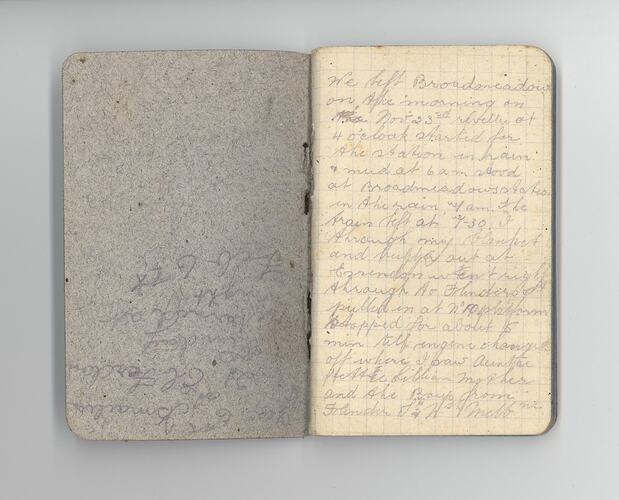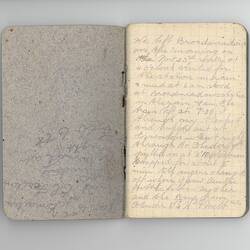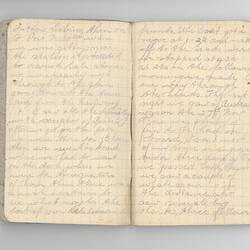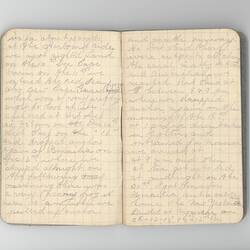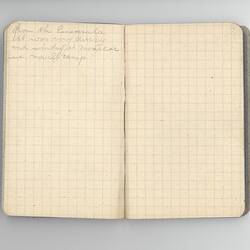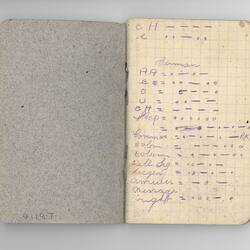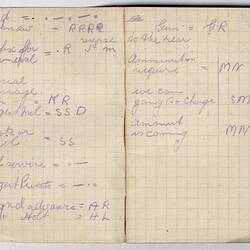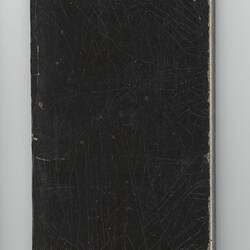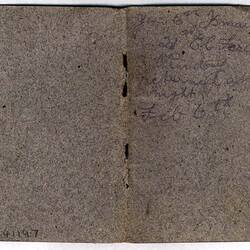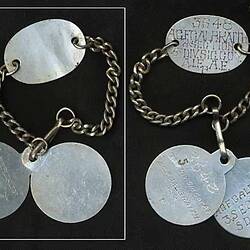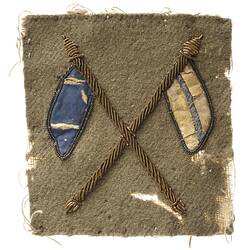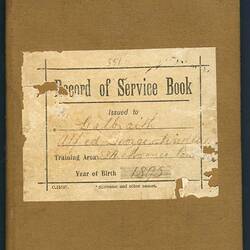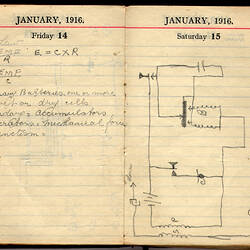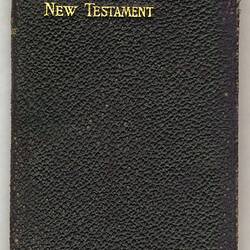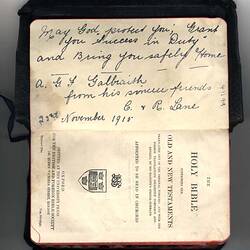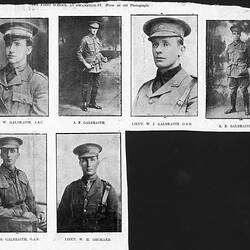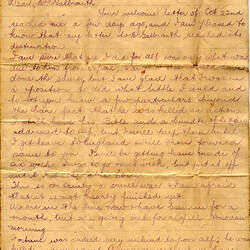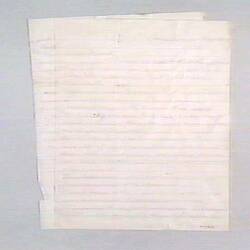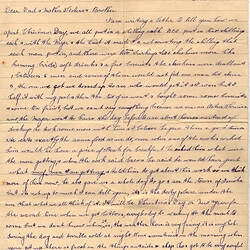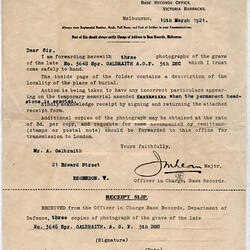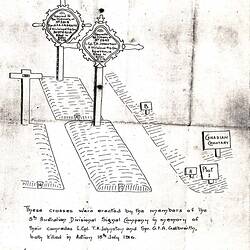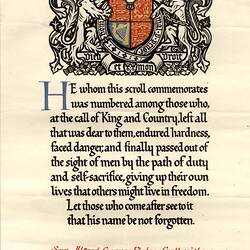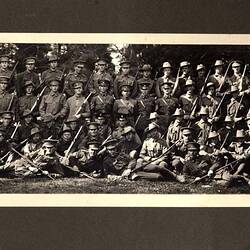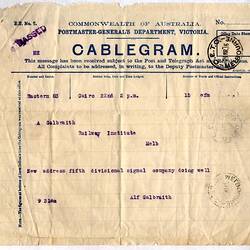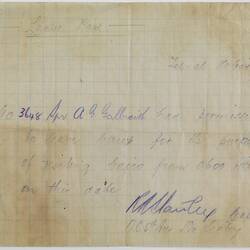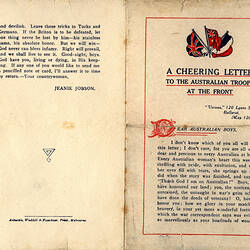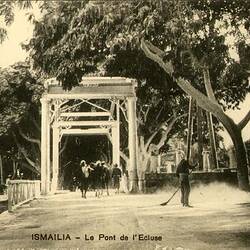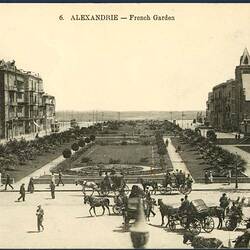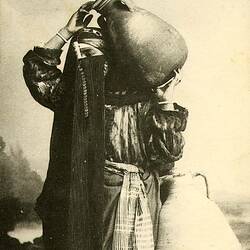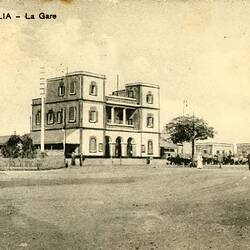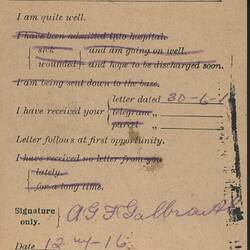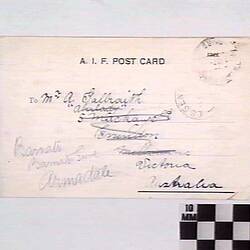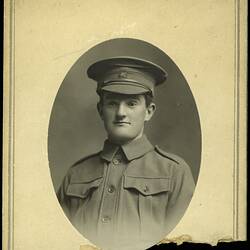Summary
Small black book apparently used by Sapper A.G.F. Galbraith as a diary during World War I, recording his movements from the army camp in Broadmeadows 23 November 1915 to Egypt 28 December 1915. He describes the journey from Broadmeadows training camp, Victoria, by train to Port Melbourne where his family saw him off at the pier. It was a wet and miserable day. He travelled by ship to Port Said, Egypt. In the back of the diary are notes on Morse code, including commonly used words and phrases. Much of the diary is blank.
The diary covers some of the same time period as another diary attributed to Galbraith, ST 041196. That is similarly incomplete.
Born in Maryborough, Sapper Alfred George Finlay Galbraith was the son of Alfred and Amy C. Galbraith, of W.R. Institute, Flinders Street, Station Buildings, Melbourne. He trained as electrical engineer and enlisted in the Australian Army at the age of 20, in July 1915. His father gave written permission for him to join 'the Military Forces to serve the Empire abroad' (his mother had already died).
Galbraith served in the 5th Division Signalling Company, Australian Engineers, AIF, embarking from Melbourne on 23 November 1915 on the 'Ceramic'. He went to Egypt for further training, then was shipped to France, disembarking 27 June 1916 at Marseilles. Less than three weeks later, on 15 July, he received a wound in the thigh and a 'penetrating wound in the neck'. He died the same day at the 8th Australian Field Ambulance. He is buried at 254 Sailly-Sur-La-Lys Canadian Cemetery, France.
His two diaries were amongst the belongings that were sent to his father. His other belongings were listed as: a New Testament, two wallets, letters, cards, photographs, a pipe in a case, a cigarette holder pouch, a tie clip, a hone, a steel mirror and six coins.
Physical Description
Small black book, soft cover. Inside pages are lined in squares. Only five pages have been used.
More Information
-
Collection Names
Returned and Services League (RSL) Collection, Military Memorabilia Collection
-
Collecting Areas
-
Acquisition Information
Donation & Subsequent Transfer from Mrs M. Jamieson, May 1985
-
Author
-
Place & Date Written
-
Organisation Named
-
Individuals Identified
GALBRAITH, A.G.F.
-
Format
Book
-
Inscriptions
No inscriptions on the cover. Inside are notes on the soldier's travels, also abbreviations for words and what looks like Morse code.
-
Classification
-
Category
-
Discipline
-
Type of item
-
Overall Dimensions
6.3 cm (Length), 10 cm (Width), 0.7 cm (Height)
-
References
National Archives records: Galbraith, Alfred George Finley: Series no. B2455, SERN 3648.
-
Keywords
Army Camps, Australian Army, Diaries, Military Memorabilia, Morse Code, Ships, Signalling, Soldiers, Telegraphy, Trains, Wars & Conflicts, World War I, 1914-1918, Making History - War Diaries and Correspondence
